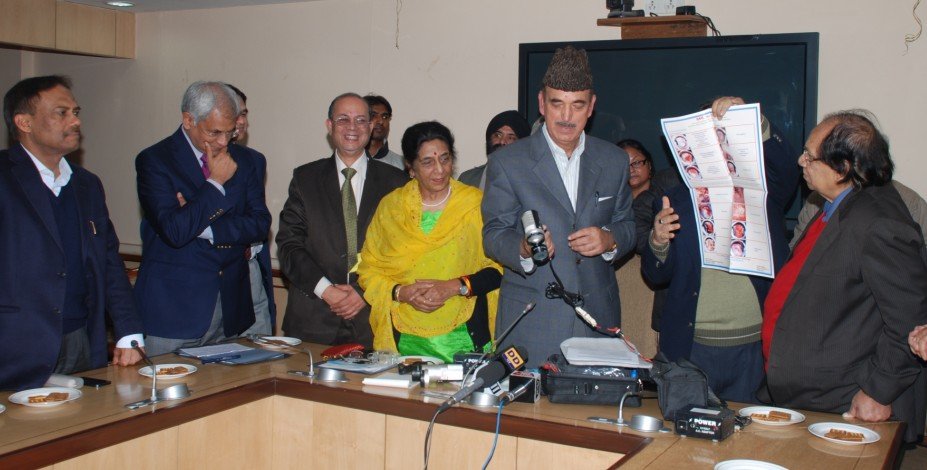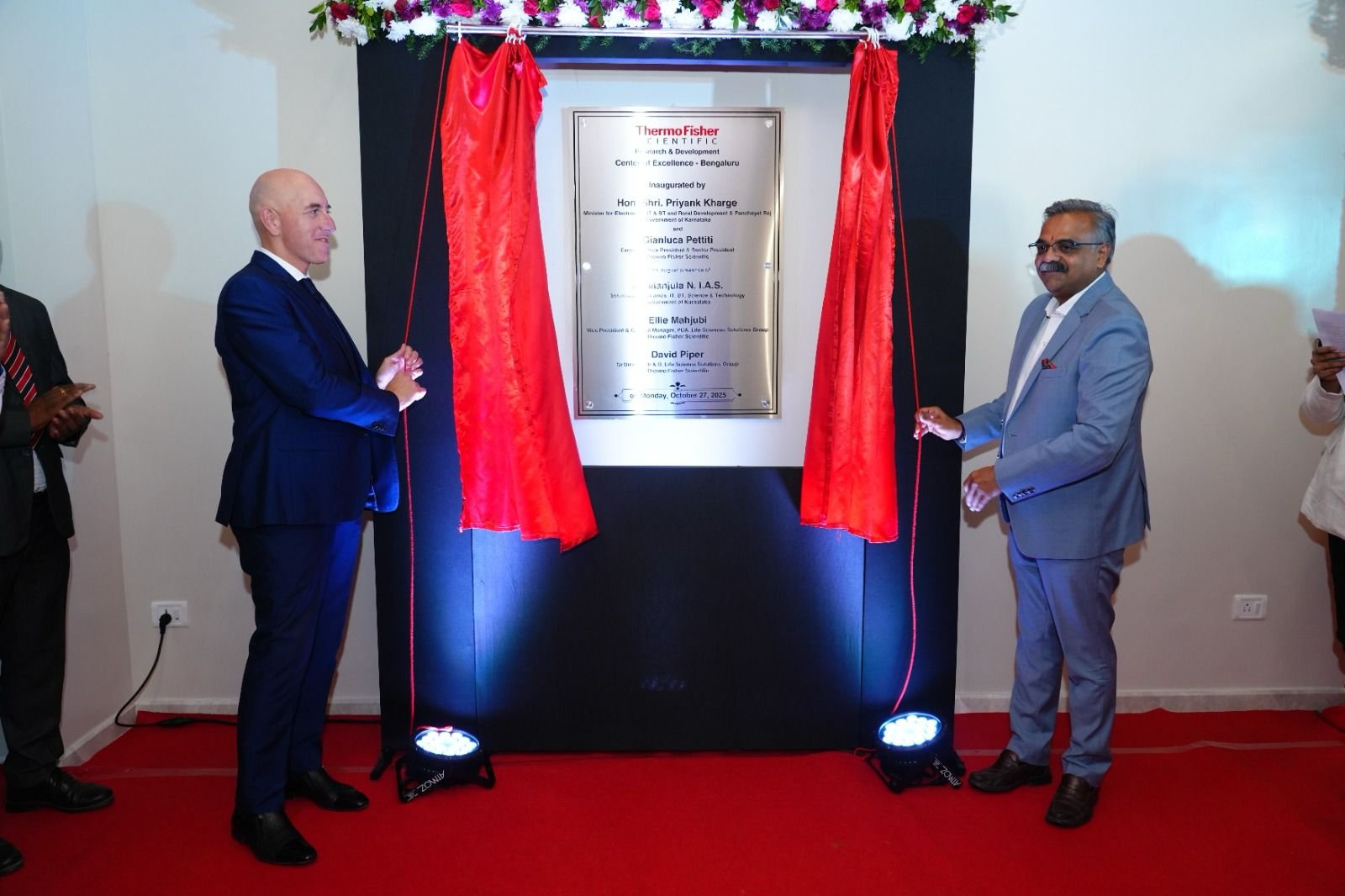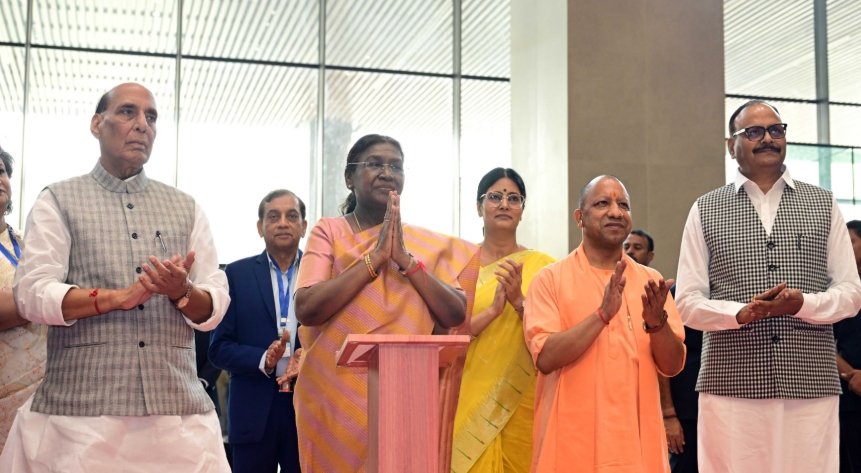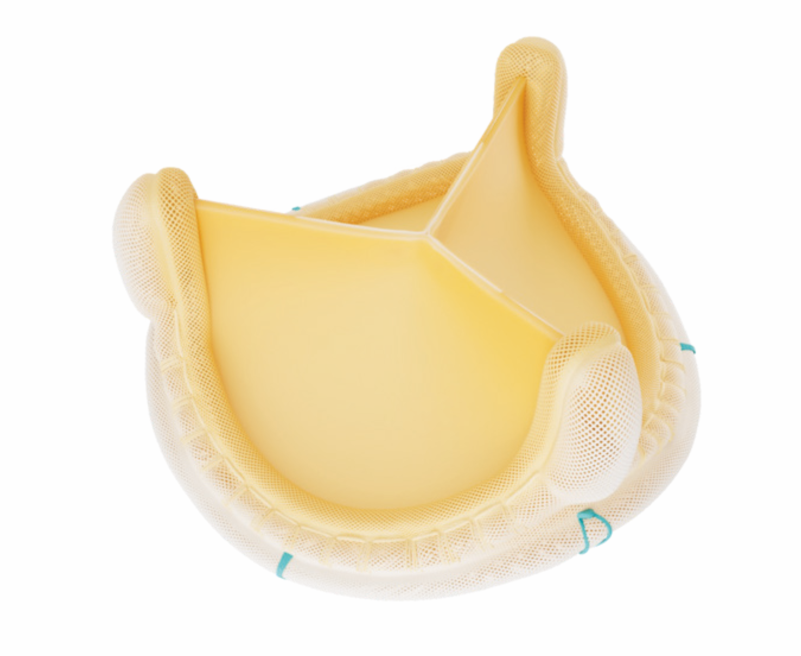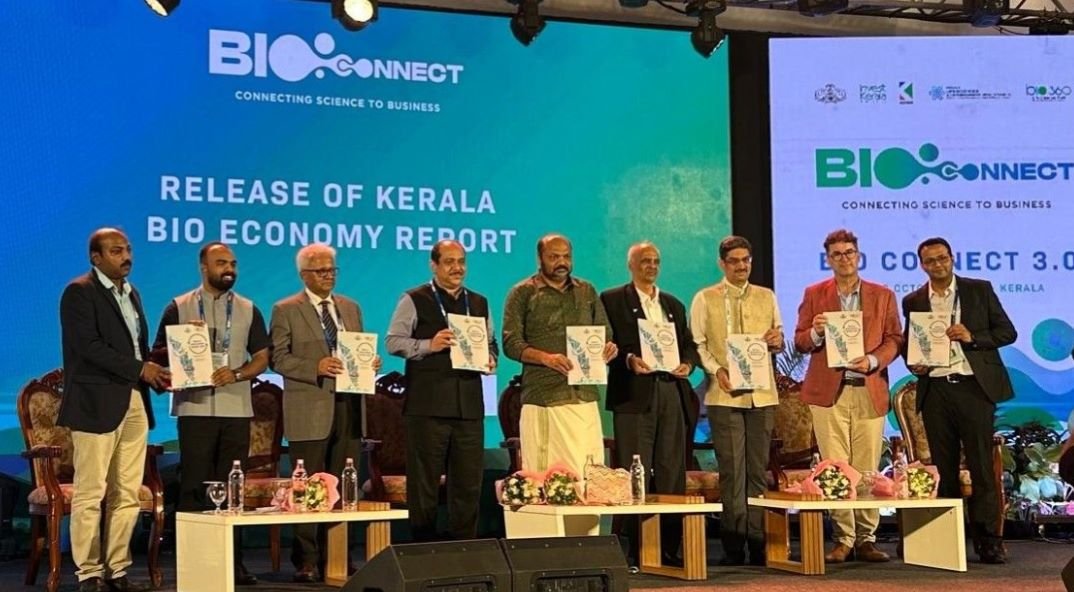Indigenous screening device for cervical cancer
December 30, 2013 | Monday | News | By Rahul Koul Koul
Indigenous screening device for cervical cancer
The union health minister, Ghulam Nabi Azad at the launch event along with (R-L) Mrs Santosh Chowdhary, minister of state for health and Dr V M Katoch, director general, Indian Council for Medical Research, New Delhi.
The union minister for health and family welfare, Mr Ghulam Nabi Azad congratulated the scientists at Indian Council for Medical Resaerch (ICMR) and Institute of Cytology and Preventive Oncology(ICPO) for designing and developing this cost-effective and affordable device for screening cervical cancer in its early stages. He stated that cervical cancer is still the number one killer cancer in several parts of rural and semi-urban India. It has been estimated that about 1 lakh 32 thousand cases of cervical cancer are diagnosed every year and 74, 000 deaths occur due to it every year. It accounted for 9% of total deaths due to cancer in 2010. He further said that many of the cases may still be going unreported in many rural areas taking the number even higher.
The health minister who was present at the launch event held at New Delhi, stated that with this device it will be easy to screen and detect cervical cancer in its early stages thus making treatment more effective. He stated that the Ministry of Health and Family Welfare has launched the "National Programme on Prevention and Control of Cancer, Diabetes, CVDs, and Stroke" in 2010 in 100 selected districts taken up initially as pilot project across 21 States to address the challenges posed by the rapidly increasing burden of NCDs, particularly Cancer, Diabetes and CVDs.
Azad said that presently screening for cervical cancer is available only in the regional cancer institutes and medical colleges. He added that the equipment presently being used is expensive, as a result of which not many medical colleges can afford this equipment. This device, which will be much cost effective, will be first rolled out in the district and sub-district community health centres (CMCs) and subsequently in the primary health centres (PHCs), he noted. As not all PHCs have lady doctors and nurses, staffing and training will form an important part of roll out paln, he stated.
Dr. V M Katoch, DG, ICMR said that this will benefit a large number of women in the country and bring down the rates of morbidity and mortality due to cervical cancer, which is high at present as it is not detected in the early stages. Cervical cancer does not occur de-novo. It starts from certain pre-cancerous states/lesions called dysplasias and it takes about a decade for cancer to develop from pre-cancerous lesions. Detection and appropriate treatment of pre-cancerous lesions will halt their progression to invasive cancers. He further stated that the accuracy and efficacy of the device has been evaluated through tests in five regions during the past two years. He also said that this device has a white light source with variable interchangeable magnification and it can be operated on 12 Volt battery in rural and semi urban areas where electric supply is not regular. Magnivisualizer has been found to pick up 1.5 times more High grade pre-cancerous and cancerous lesions than the ordinary tungsten light.
Also present at the launch function were Mrs Santosh Chowdhary, minister of state (MoS) for health, Mr A. H. Khan Chowdhury, MoS (Health), Mr K Desiraju, Secretary (Health), Lov Verma, Secretary (DAC), and senior officers of the ministry of health and family welfare and scientists.


